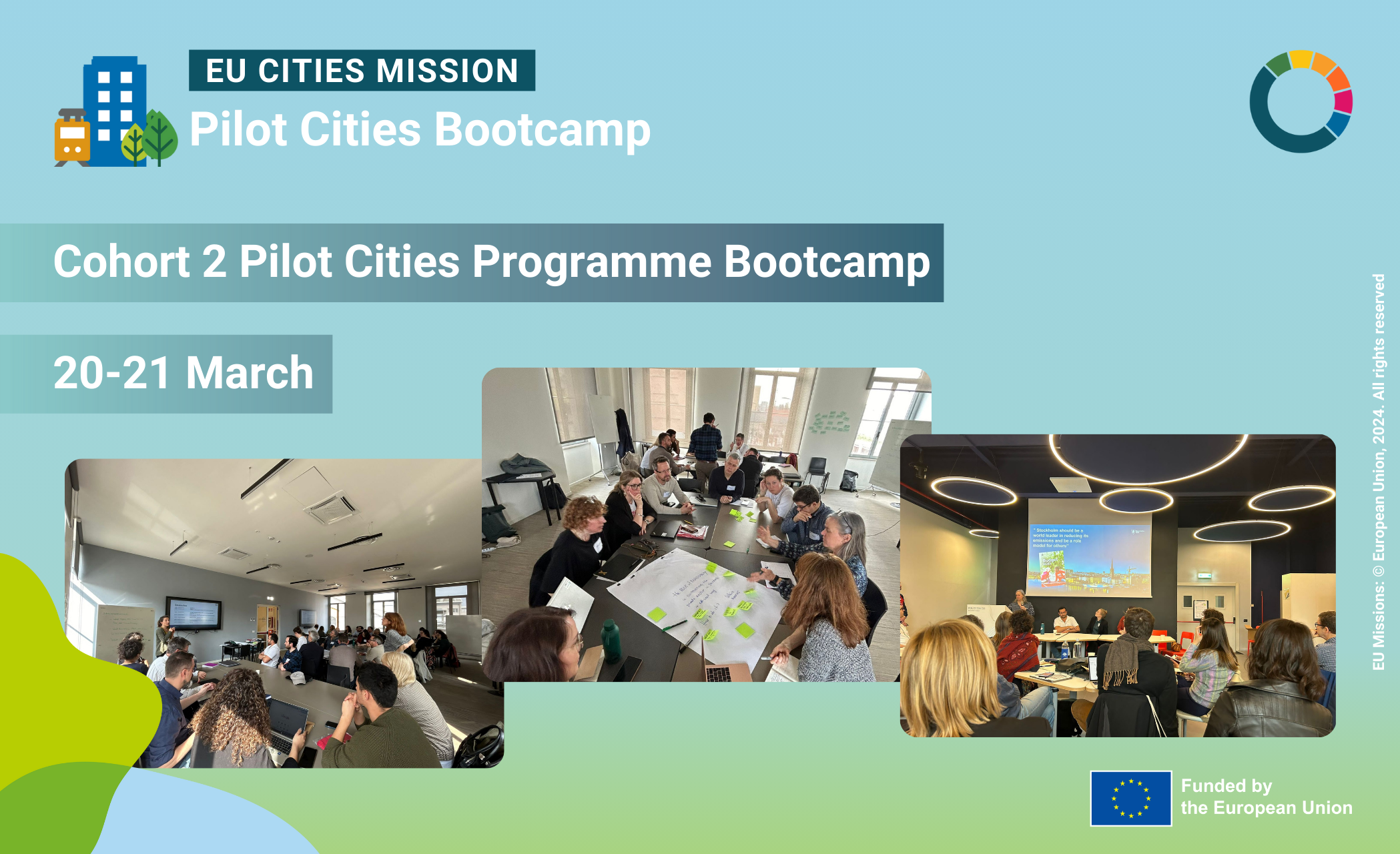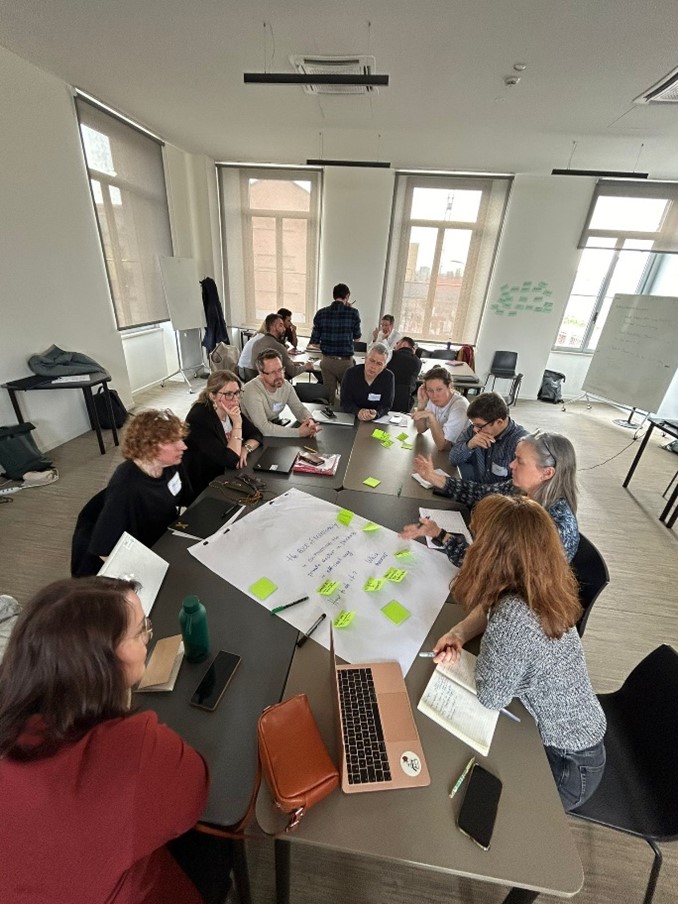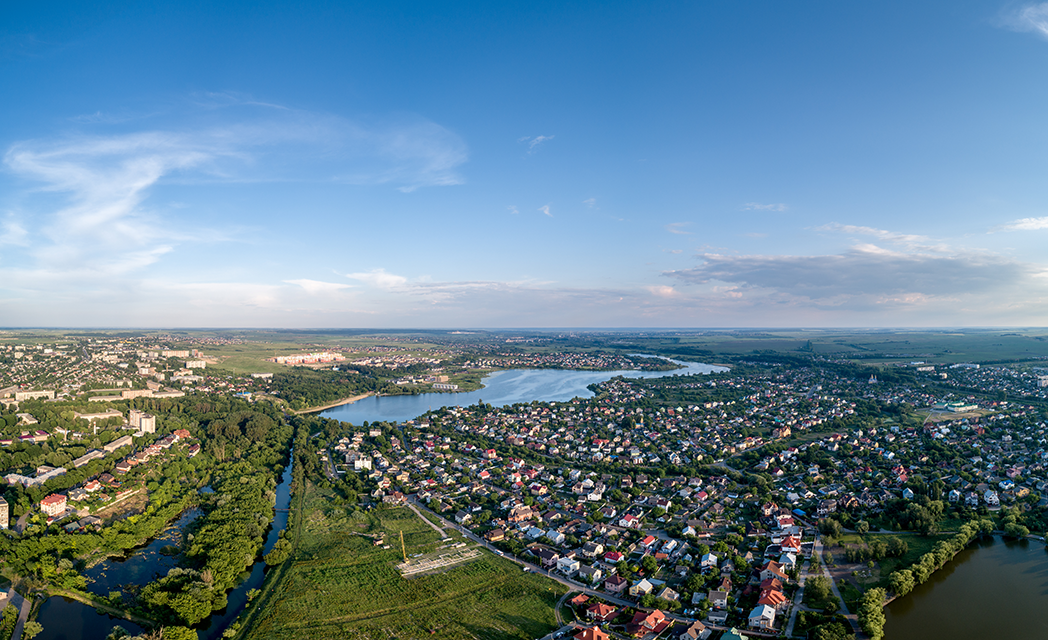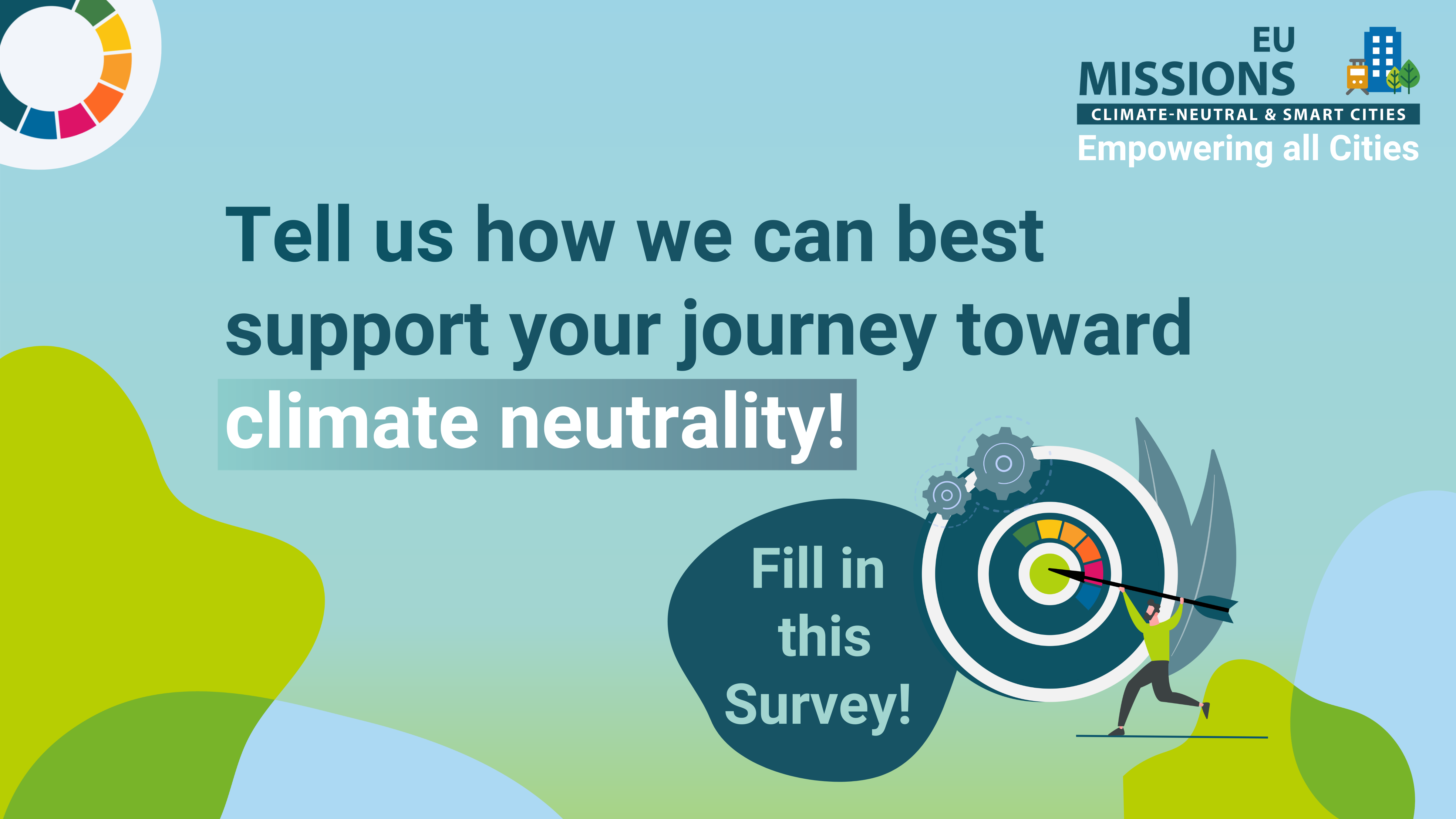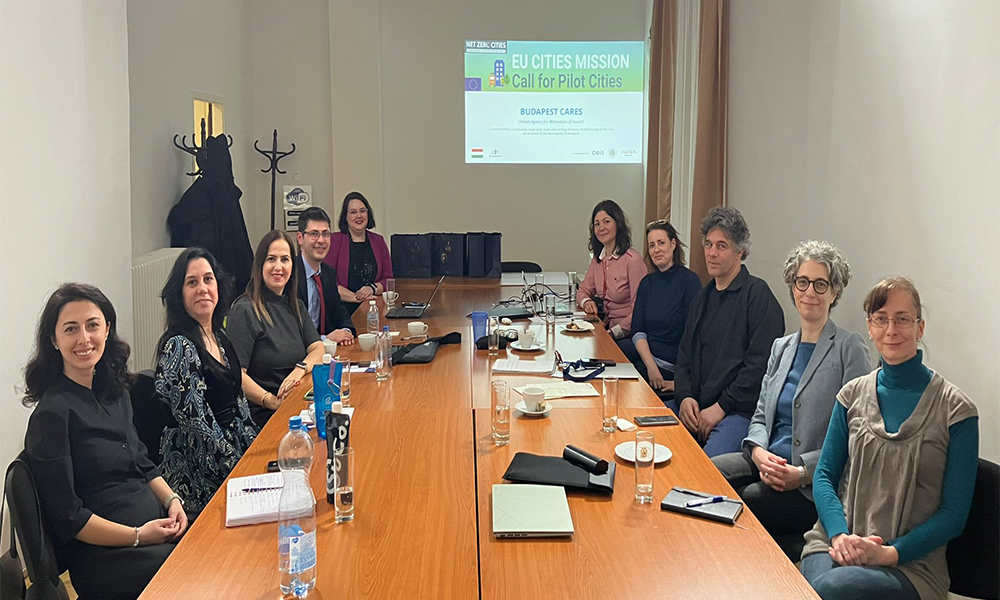Author: Elisa Abrantes: elisa.abrantes@climate-kic.org
The second cohort of cities taking part in the Pilot Cities Programme kicked off their two-year run as Pilot Cities at the NetZeroCities Bootcamp in Milan, on the 20 – 21 March. The NetZeroCities Consortium hosted representatives from the 26 cities at the Politecnico di Milano, where the sunny 20°C weather showed early signs of Spring.
The Bootcamp is an essential first step in the Pilot Cities Programme, putting cities at the centre of what they want their projects to achieve and learn, helping them refine their Pilot City proposals, and connecting them to their overall journey towards climate neutrality as part of the EU Mission for Climate-Neutral and Smart Cities to achieve maximum impact.
By carving out some much-needed time for discussion, learning and reflection, the event aimed to provide a space in which cities could learn from each other and hear from subject experts on a variety of relevant themes.
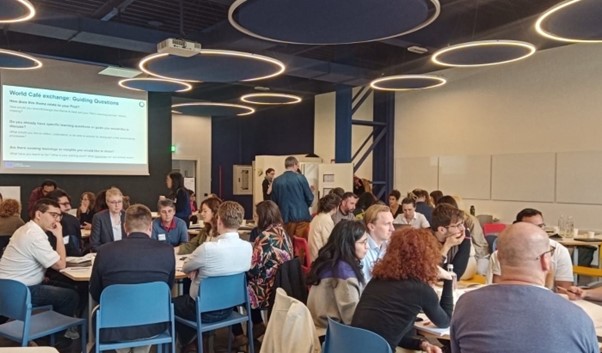
Within the Pilot Cities Programme, NetZeroCities provides resources and space for participating cities to take different approaches to innovation and change across multiple domains, with a heavy focus on learning and experimentation, with the goal of reaching climate neutrality.
For the first time, city representatives from the same cohort met in-person, providing much needed space for knowledge exchange and networking. The second cohort of Pilot Cities include Aarhus, Bucharest, Copenhagen, Eilat, Espoo, Gävle, Helsingborg, Ioannina, Lappeenranta, Lisbon, Lund, Lyon, Marseille, Oslo, Porto, Riga, Stockholm, Tronheim, and Zagreb.
Three groups of cities applied together as multi-city Pilots: Kosice and Bratislava; Pecs and Miskolc; Klagenfurt, Gozo, and Vilnius. The representatives of the multi-Pilot group of Klagenfurt, Gozo, and Vilnius initially met at another NetZeroCities event, the NetZeroCities Summer School, resulting in their collaboration in the Pilot Cities Programme.
The two-day event featured a variety of session topics and formats:
- ‘Moments of Pride’: Aarhus, Stockholm, Eilat, Espoo, Porto, Klagenfurt, Lappeenranta, and Bucharest presented some of their achievements and their Pilot to the group.
- ‘Challenge Workshops’: Marseille, Pecs, Copenhagen, and Ioannina presented a challenge they were facing in their city, and representatives from other cities worked together to think through the potential solutions.
- A clustering exercise: cities joined smaller break out groups on mobility, built environment, multi-actor mobilisation, citizen engagement, energy transition and governance and policy innovation.
- ‘Project surgeries’: free slots in which participants could schedule short one-to-one discussions.
- Subject expert sessions facilitated by NetZeroCities on Monitoring, Evaluation and Learning, the Just Transition and Behaviour Change.
The value of bringing cities together in-person quickly became apparent. Participants were enthusiastic in their discussions, many expressing their interest in scaling up collaboration, despite the many differences between their cities in terms of population size, geography, or political conditions.
Throughout the two days, we saw two-way learning between capital/large cities and smaller cities begin to flourish; cities linking their Pilot Activities to their overall Climate City Contract journey, addressing systemic challenges such as citizen engagement, multi-actor collaboration/governance, and digital solutions; cities sharing how they are tackling complex implementation challenges like multi-actor portfolio management and grid congestion barriers to accelerated electrification; and, through expert input from NetZeroCities partners, desire and appetite to rethink assumptions on behaviour change and just transitions, fostering more systemic and inclusive practices.
The dynamism with which cities wanted to weigh into discussions and work together to solve common problems was inspiring, confirming the value of such events throughout the programme.
”There are quite a lot of other projects working in cross-collaboration issues and citizen engagement, and talking about a lot of methods that they are using that we can also use in Stockholm. I would like to have more small group discussions with those working on similar things.’’ – Stockholm
Indeed, 21 out of 22 of the Pilot City projects in this group identified improved citizen participation as one of their project’s main domains. Social inclusion, democracy and cultural impact was the most frequently selected domain across all projects.
Cities are very much looking to address the difficulties they have in involving citizens, and looking to other cities for inspiration. Given that only a small proportion of emissions within a city are directly under the control of the city administration, remaining emissions must be reduced by engaging the right partners and citizens in a way that will lead to systemic impact.
“There are lots of ‘sleeping silos’ – groups of people that have an interest in, for example, increasing cycle lanes. But these are hard to activate. If they spoke up, they could have a real impact.’’ – Ioannina
Thinking through their challenges and opportunities together fostered deeper understanding of their different realities and ways of working, and sparked potential solutions that could be scaled and replicated to suit different contexts. It also gave cities the opportunity to identify who they could benefit from further discussions with, and schedule one-on-one conversations.
”Despite the differences between our cities, we share the same problems.’’ – Bucharest
The words from this city representative capture the feeling of common understanding and collaboration very much present throughout the event.
Find out more
- Find out more about the second cohort: https://netzerocities.eu/pilot-cities-cohort-2-2023/
- Find out more about the Pilot Cities Programme: https://netzerocities.eu/2023/12/20/european-cities-test-innovative-pathways-to-climate-neutrality-in-the-pilot-cities-programme/
- Find out what’s next for these cities: https://netzerocities.eu/2024/02/08/innovation-and-learning-hubs-for-climate-neutrality-whats-next-for-the-cities-in-the-pilot-cities-programme/es
